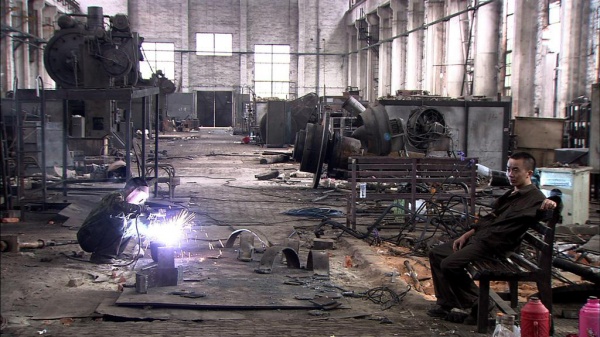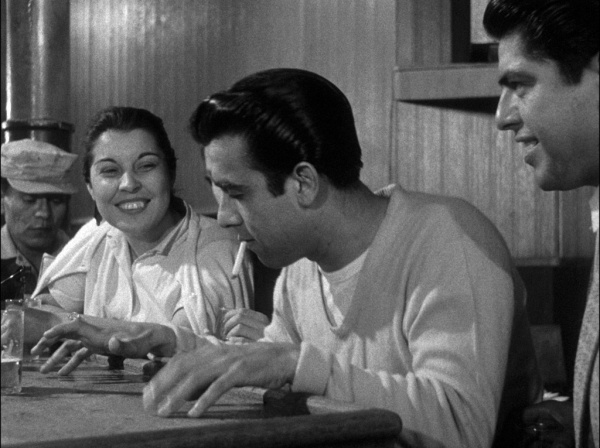
There’s an astonishing moment early in Chinese director Jia Zhang-ke’s new nonfiction film 24 City–the highlight of the Walker’s latest “Expanding the Frame” series–where the imminent demolition of a 50-year-old factory is celebrated in a formal ceremony as auguring a “new and glorious chapter” for Chengdu City. Presiding over the pomp and circumstance of “progress”–a swanky new apartment complex, of course–is a businessman who watches approvingly as a singing crowd dutifully salutes the transfer of land from people to corporation: Happy days are here, if not for all. Even more striking than this umpteenth illustration of Luxury Living is Jia’s climax–not the factory’s demolition, it turns out, but the subsequent testimony of a young woman who complicates our view of this ostensibly tragic development. In the end, one’s desire to advance her family in economic terms isn’t hard to understand–not in any language.
Along with 24 City (January 30 and 31 at 7:30 p.m.), films from Mexico, the United Kingdom, and the United States lend equal parts specificity and universality to the “Place and Time” half of the “Expanding” series. (Experimental cinema–including that of the late, great Derek Jarman, celebrated here with three features, a shorts package, and the area premiere of Isaac Julien’s biographical documentary Derek–constitutes the other half.) The range of these five “Place and Time” films extends to style and tone as well: There’s the acerbic Of Time and the City (January 23 and 24, 7:30 p.m.), native Liverpudlian Terence Davies’s sarcastic ode to his hometown, a found footage epic as kaleidoscopically surreal as Guy Maddin’s My Winnipeg; the deadpan farce of Fernando Eimbcke’s Lake Tahoe (February 6 and 7, 7:30 p.m.), a sort of Mexican After Hours; and Alex Rivera’s sci-fi Sleep Dealer (February 27 at 7:30 p.m.), an Amerindie Brazil and a aptly forward-looking capper to the series.
But how on earth to describe The Exiles (January 16 and 17 at 7:30 p.m., and January 17

and 18 at 2:00 p.m.)? Recently rescued from oblivion, owing in part to its salute in Thom Andersen’s genius cult doc Los Angeles Plays Itself, this 1961 portrait of Native Americans in L.A.’s Bunker Hill district is, in fact, not truly a portrait, as director Kent MacKenzie has the subjects of his nonfiction playing themselves in reenactments. So, too, the film remains controversial–to this day, and, if anything, insufficiently so–for allegations that MacKenzie essentially paid (or plied) his vulnerable nonactors with alcohol. In other words, The Exiles, named for three men who go AWOL from their reservation–is a vision of a culture that isn’t just lost but on some level nonexistent. Which, come to think of it, is a fair definition of cinema–at least if one sees the camera as an even greater influence on “reality” than booze.
Thus “Expanding the Frame” doubles as a bold articulation of how movies–even documentaries–concoct as much as they preserve. Could it be any other way? In 24 City, Jia meets the inevitable head-on by employing professional actors, including Joan Chen, to fill in his nonfiction’s gaps. In Of Time and the City, Davies, with his witheringly intelligent voiceovers, flaunts the sense in which any assemblage is subjective. If the films by Rivera and Eimbcke appear comparatively conventional, each hardly fails to capture a reality that, if it ever existed, was already gone in the instants–24 per second, maybe 30–after the shutter snapped. The passing of time and place: that, unavoidably, is progress.
Get Walker Reader in your inbox. Sign up to receive first word about our original videos, commissioned essays, curatorial perspectives, and artist interviews.